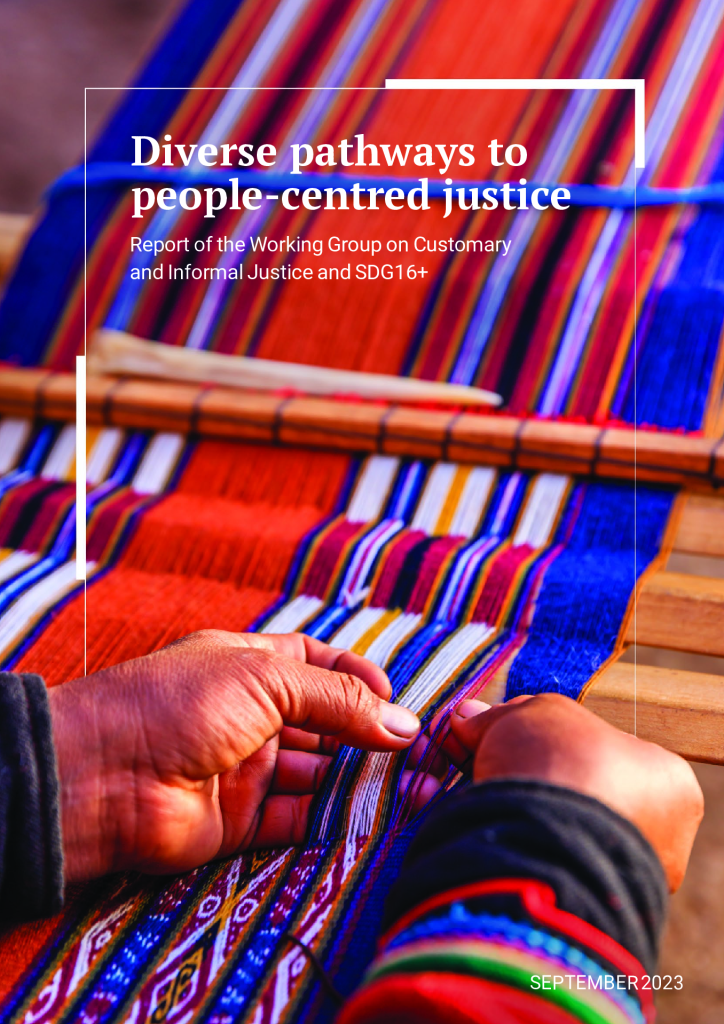Diverse Pathways to People-Centered Justice
Contributors: Working Group on Customary and Informal Justice (CIJ) and SDG16+
More than five billion people lack meaningful access to justice. As a result, they are often denied their rights, marginalized, displaced from land, or subjected to violence without remedy. To tackle this global justice gap, the 2030 Agenda commits United Nations member states to ensure equal access to justice for all, articulated in Sustainable Development Goal (SDG) 16 on peaceful, just, and inclusive societies. The failure to meet this goal has implications for all other SDGs. While formal justice systems and institutions are essential for justice delivery and as pillars of societies for the rule of law, evidence shows that most people do not resort to courts to solve their justice problems but instead rely on diverse providers frequently referred to as customary and informal justice (CIJ).
To address justice needs, justice systems must therefore transform and meet people where they are. Formal justice systems cannot meet the justice needs of all people. Delivering equal access to justice for all requires governments, development partners and civil society to engage with the empirical reality of CIJ and factor this into justice delivery and programming. CIJ provides a huge portion of the population with access to justice systems and offers indispensable solutions and learning about what works for people in achieving justice
The case for greater recognition of CIJ systems is straightforward: most people resolve their problems and claim their rights outside of national statutory courts or formal justice systems
This report is the result of a collaborative effort from the Working Group on Customary and Informal Justice (CIJ) and SDG16+, comprising 60+ organizations including UNDP, UN WOMEN, Cordaid, Folke Bernadotte Academy, IDLO, Namati, ODI, The Pathfinders, and many others, established to advocate for the centrality of CIJ systems as critical to advance access to justice for all and indispensable to the achievement of SDG16.
The report pleads for increased engagement with CIJ actors. It reviews the characteristics of CIJ, discusses why they are integral to achieving justice for all, reframes the risks of engagement and non-engagement with CIJ, and proposes ways to effectively engage.
The recommendations to policymakers and practitioners include:
- Adopt a justice systems approach to understand the diversity of justice providers and shape reform plans.
- Deliver a step-change in justice support through expanded CIJ engagement to achieve justice for all by 2030.
- Empower justice seekers, especially marginalized groups, to participate in and benefit from CIJ systems.
- Advance women and girls’ participation and leadership and ensure the protection of their rights in CIJ systems.
- Support development partners to engage with CIJ to deliver people-centered justice.
- Increase investment in people-centered justice, including CIJ systems.
Related Resources
